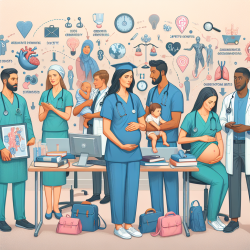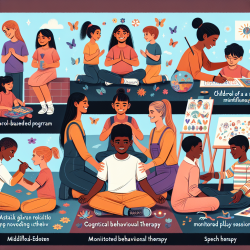Introduction
The landscape of medical education has significantly evolved over the decades, with a notable increase in female participation. Today, nearly 50% of medical students are women, and many of them navigate the challenges of starting families during their residency and fellowship training years. The study titled Changes in attitudes, beliefs, and experiences related to pregnancy during Graduate Medical Education training from 2005 to 2021 provides valuable insights into the changing attitudes and experiences of medical residents regarding pregnancy.
Key Findings and Implications
The research conducted through web-based surveys in 2005 and 2021 highlights several critical findings:
- Positive attitudes towards covering for pregnant colleagues have increased over time, yet compensation for such coverage remains minimal.
- Pregnancy during training is perceived as "somewhat difficult" or "very difficult" by most residents, with physical demands being a significant stressor.
- Pregnancy complication rates are alarmingly higher among residents compared to the general population, with rates of 33% in 2005 and 44% in 2021.
- Awareness of parental leave policies is lacking, with about 25% of residents unaware of such policies in their programs.
Recommendations for Practitioners
Given these findings, it is imperative for training programs to implement structured support systems for pregnant residents and their partners. Here are some actionable recommendations:
- Enhance Policy Awareness: Programs should ensure that all residents are well-informed about parental leave policies. This can be achieved through regular informational sessions and accessible online resources.
- Compensation for Coverage: Introduce compensation mechanisms for residents covering for their pregnant colleagues to foster positive attitudes and alleviate potential resentment.
- Physical Workload Adjustments: Modify the physical demands of work for pregnant residents by offering special electives or reduced call schedules, particularly towards the end of pregnancy or upon return to work.
- Focus on Well-being: Implement wellness programs that address the physical and emotional challenges faced by pregnant residents, thereby improving overall morale and outcomes.
Encouraging Further Research
While this study provides a comprehensive overview of the current state of pregnancy-related attitudes and experiences in medical education, further research is needed to explore the causality of high pregnancy complication rates among residents. Future studies should aim to identify specific factors contributing to these complications and develop targeted interventions to mitigate them.
To read the original research paper, please follow this link: Changes in attitudes, beliefs, and experiences related to pregnancy during Graduate Medical Education training from 2005 to 2021.










